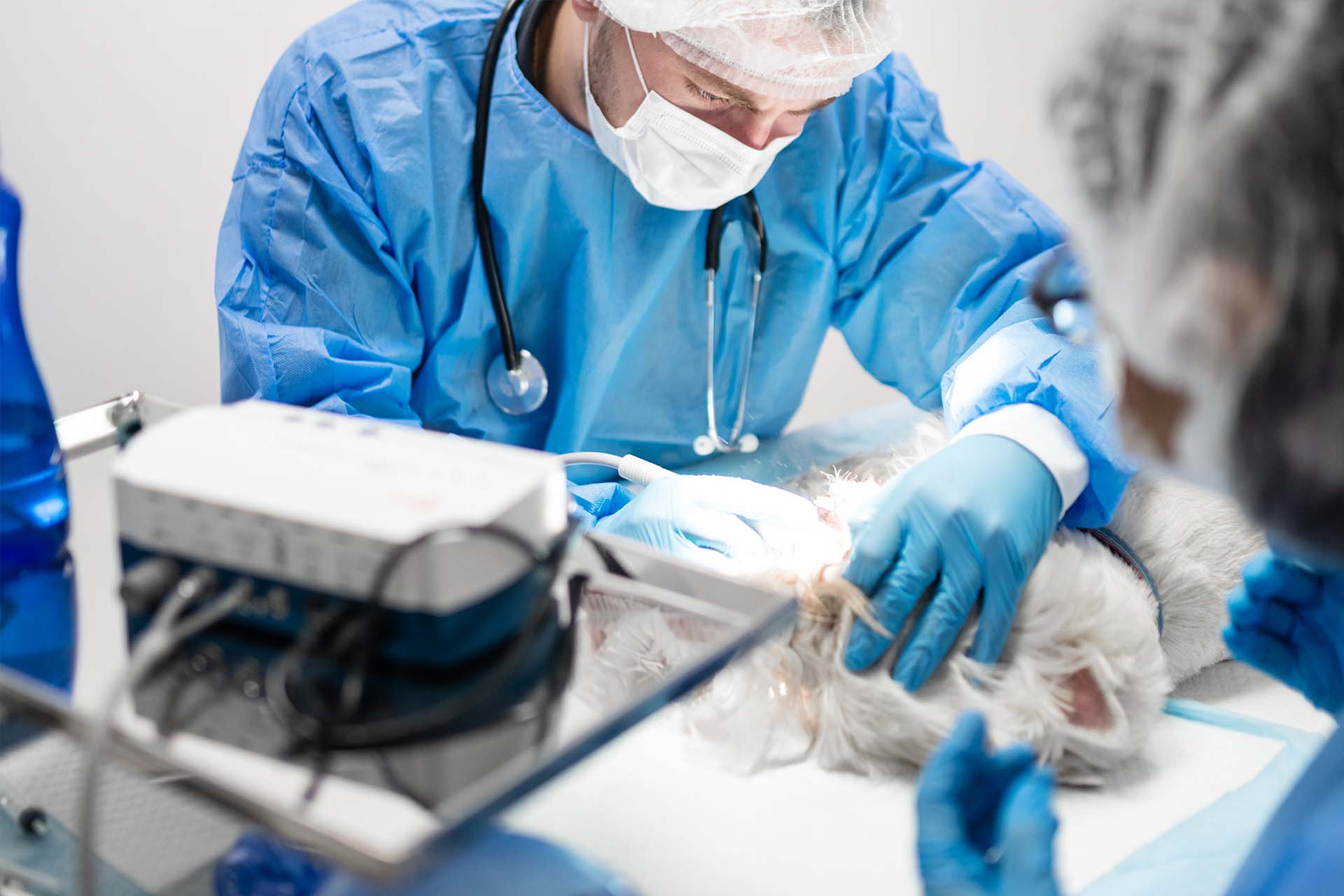Causes of dental problems in pets
Oral problems occur not only in older pets, but also in younger animals. Abnormalities can be of these types:
- Genetically conditioned - manifested by an improper bite or continuously growing teeth, as in the case of rodents.
- Acquired - the result of trauma or lack of hygiene.
- Reluctance to touch food.
- Unpleasant odor from the mouth.
- Excessive salivation.
- Swelling of the muzzle.
- Discolored tooth enamel.
- X-rays of the oral cavity.
- Dental cleaning.
- Periodontal probing.
- Teeth extraction.
- Plaque removal with a UDS-L LED ultrasonic scaler.
- Cleaning of the underbrush.
- Removal of dental calculus.
- Polishing of teeth.
- Removal of teeth that cannot be treated.
- Correction of bite by bracket systems.
- Correction of the length of teeth in rabbits, guinea pigs, rats, deer and chinchillas
Either of these problems is worth seeing a veterinary dentist for. Our professionals treat each case individually, allowing for maximum treatment effectiveness.
Dental symptoms in dogs, cats and rodents
If you are attentive enough to your pet, you may notice changes in their behavior. A dental concern may be indicated by these signs:
Is any of these symptoms present? An urgent visit to the veterinary clinic is necessary. The sooner the correct diagnosis is made, the sooner your pet will return to a full life.
Comprehensive Pet Dentistry in Los Angeles
Initially, the dentist examines the patient's oral cavity. Diagnosis continues with x-rays, as much of the tooth is not available for viewing. X-rays provide the veterinarian with a full picture of the lesions. A number of procedures at Veterinary Hospital Animal Clinic International are performed exclusively under anesthesia:
Their safety is monitored by a veterinary anesthesiologist. He makes an anesthesia plan in advance, which takes into account the age and chronic diseases of the patient.
Staying under anesthesia, the animal does not feel stress and pain, and specialists do not need to fix it. That is, the dentist can calmly do his work. At our veterinary clinic, dental treatments are available such as:
If indicated, the dentist at our veterinary center can prescribe antibiotic therapy or surgery. You can always seek advice on the specifics of your pet's home treatment and oral care. A yearly preventive checkup with a veterinary dentist is a way to keep your pet's teeth strong and healthy.


